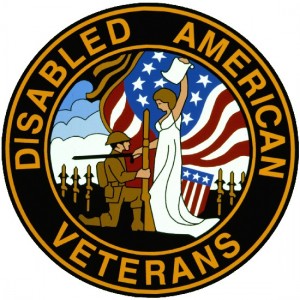Posts
Hiring Vets Makes For A Good Business Decision
Hiring a US Military Vet just makes good business sense. They’re efficient, have great leadership skills, respect procedures, work well with a team and a host of other things. In this video Craig Lockerd and Paul Hardy discuss why hiring a US Military Vets, to fill your job openings, is a good idea.
10 Reasons To Hire A Disabled Vet
 Ability to learn new skills and concepts. While in the military, Service Members undergo rigorous training programs to become experts in a wide-range of skills and concepts that can easily be transferred to a civilian work environment. The skills Service Members have learned and applied in real-world situations in the military make them ideal candidates to enhance your organization’s productivity.
Ability to learn new skills and concepts. While in the military, Service Members undergo rigorous training programs to become experts in a wide-range of skills and concepts that can easily be transferred to a civilian work environment. The skills Service Members have learned and applied in real-world situations in the military make them ideal candidates to enhance your organization’s productivity.- Strong leadership qualities. The military trains Service Members to lead by example as well as through direction, delegation, motivation and inspiration in some of the toughest situations imaginable. Service Members are not only well schooled in the academic theory of leadership; they also understand and have used practical ways to manage behaviors for results.
- Flexibility to work strongly in teams or work independently. Military training teaches Service Members to work as a team by instilling a sense of a responsibility to one’s colleagues. In addition, the size and scope of military operations necessitates that Service Members understand how groups of all sizes relate to each other and support the overarching objective. While military duties stress teamwork and group productivity, they also build individuals who are able to perform independently at a very high level.
- Diversity and strong interpersonal skills. Service Members have learned to work side by side with individuals regardless of race, gender, religion, ethnic, and cultural backgrounds, economic status, and geographic origins as well as mental, physical and attitudinal capabilities. Many Service Members have also been deployed or stationed in numerous foreign countries that give them a greater appreciation for the diverse nature of our globalized economy.
- Ability to work efficiently and diligently in a fast-paced environment. Service Members have developed the capacity and time-management skills needed to know how to accomplish tasks correctly and on time, in spite of limited resources and immense pressure.
- Respect for procedures and accountability. Service Members know how policies and procedures enable an organization to be successful and they easily understand their place within an organizational framework. Service Members understand the responsibility that comes with being responsible for the actions of subordinates and they understand how to properly elevate issues through the proper supervisory channels.
- Hands on experience with technology and globalization. Today’s military uses the cutting-edge technology to maintain our dominance over the enemy in the battlefield. From communications technology to the security of computer networks and hardware, Service Members must stay aware of emerging technologies in the public and private sector.
- Strong personal integrity. Military training demands that individuals not only abide by a strong Code of Ethics, but that they live it each and every day. Military personnel are often trusted with security clearances that give them access to highly sensitive information. An employee with a proven track record of trustworthiness is often an asset to an organization.
- Strong sense of health, safety and property standards. Service Members are aware of health and safety protocols both for themselves and the welfare of others. Individually, they represent a drug-free workforce that is cognizant of maintaining personal health and fitness. On a company level, their attentiveness and care translate into respect for employees, property and materials.
- Triumph over adversity. In addition to dealing positively with the typical issues of personal maturity, Service Members have frequently triumphed over great adversity. Service Members have proven their mettle in mission critical situations demanding endurance, stamina and flexibility. In the case of wounded warriors, they have overcome severe disabilities, acquired injuries (including invisible injuries) through strength, determination and personal conviction.
FAQ About Traumatic Brain Injury and Employment
 What is Traumatic Brain Injury (TBI)?
What is Traumatic Brain Injury (TBI)?
A Traumatic Brain Injury (TBI) is defined as a blow or jolt to the head or a penetrating head injury that disrupts the function of the brain. Not all blows or jolts to the head result in a TBI. The severity of such an injury may range from very “mild,” (i.e., a brief change in mental status or consciousness) to “severe,” (i.e., an extended period of unconsciousness or amnesia after the injury). A TBI can result in short or long-term problems, although most people with TBI are able to function independently.
Are all TBIs the same? What are the symptoms of TBI?
“TBI” is an umbrella term that spans a wide continuum of symptoms and severity. In fact, the large majority (80%) of combat head injuries sustained in Operation Iraqi Freedom and Operation Enduring Freedom are mild concussions as opposed to severe, debilitating TBI. Symptoms can include: poor concentration, irritability, fatigue, depression, memory problems, headaches, anxiety, trouble thinking, dizziness, blurry/double vision and sensitivity to bright light. For people with brain injuries, the most rapid recovery occurs in the first six months after the injury, and in milder cases, patients will often be back to normal within three months. When several symptoms persist for three months or longer, the diagnosis of post-concussion syndrome can be considered.
Are TBIs disabilities under the Americans with Disabilities Act?
The ADA does not contain a list of medical conditions that constitute disabilities. Instead, the ADA has a general definition of disability that each person must meet. Therefore, some people with TBI will meet the criteria for having a disability under the ADA and some will not. A person has a disability if he/she has a physical or mental impairment that substantially limits one or more major life activities, a record of such an impairment, or is regarded as having such an impairment. For more information about how to determine whether a person has a disability under the ADA, visit www.eeoc.gov/policy/docs/902cm.html.
Are employees (or applicants) with TBI required to disclose their disability to their employers?
No. Employees need only disclose their disability if/when they need an accommodation to perform the essential functions of the job. Applicants never have to disclose a disability on a job application, or in the job interview, unless they need an accommodation to assist them in the application or interview process.
Can an employer ask an employee with TBI to submit to a medical examination?
Yes, if the need for the medical examination is job-related, consistent with business necessity and conducted after an offer has been made. People with brain injuries (or any disability) do not have to submit to a medical exam, or answer any medical questions until after they have been conditionally offered a job.
Why does employment play such an important role in the recovery of returning service members with TBI?
Employment enables many people with disabilities, including those with TBI, to fully participate in society. For example, employment provides income that is key to individual and family economic health and general well-being, and builds skills for the future. It also provides greater social interaction and connections that can reduce isolation and build social capital. Finally, employment provides a valued social role in our society and helps create a sense of personal efficacy and social integration that contributes to greater life satisfaction. According to the National Council on Disability, people who regain employment following the onset of an injury and/or a disability report higher life satisfaction and better adjustment than do people who are not employed. For these reasons, gainful employment can be one important component in the recovery and rehabilitation of returning service members with TBI.
What challenges might people with TBI encounter in the workplace?
Although recovery from mild brain injuries (concussions) is generally uncomplicated and complete, some individuals continue to experience cognitive or mood difficulties. Most workplace difficulties associated with TBI are related to attention span, short-term memory, and organization. For some, headaches and mental fatigue may persist.
What sorts of jobs are well-suited for people with TBI?
Because the effects of TBI vary widely, there are no occupations that any particular person with TBI is disqualified from pursuing. Individuals with TBI are finding jobs in a variety of settings, including information technology (IT) companies, healthcare facilities, veterans service organizations and government agencies. However, certain characteristics provide the greatest potential for workplace achievement and success:
- Regular daily schedules
- Routine tasks
- Low levels of distracting noise and light
- Regular breaks
- Access to memory aids (such as voice recorders and task checklists)
How can employers help people with TBI do their jobs more effectively?
Though the time period needed for workplace accommodations can often be short, a variety of promising practices can help people with TBI succeed in the workplace. These include the following:
- Schedule-reminders (telephone, pagers, alarm clocks)
- Scheduled rest breaks to prevent stimulus overload and fatigue
- Work task checklists and clipboards
- Tape recorders as memory aids
- Stop watches for time management
- Job coaches who make frequent, scheduled site visits
- Supportive phone calls after work
- Role playing exercises related to the job
- Periodic evaluation forms completed by supervisors and/or job coaches
- Job-site accommodations including adaptive technology
- Job sharing with another employee
- Mentoring by a co-worker or retired worker
- Setting reasonable expectations for task completion
- Limiting multi-tasking
- Scheduling more difficult or challenging tasks at the beginning of the work shift to account for fatigue
- Recognizing accomplishments through positive reinforcement
(Note: Those with mild TBI generally do not need all of these adjustments or accommodations.)
What resources are available to help employers meet the needs of employees with TBI?
The America’s Heroes at Work Web site-www.AmericasHeroesAtWork.gov-features numerous tools and resources to help employers and workforce development professionals understand and address the needs of employees with TBI. The Web site offers additional fact sheets on TBI-related job accommodations, as well as links to the Web sites of other agencies and organizations such as:
- The Brain Injury Association of America
- Computer/Electronic Accommodations Program (CAP)
- The Defense Centers of Excellence for Psychological Health and Traumatic Brain Injury
- The Defense and Veterans Brain Injury Center
- Employer Support of the Guard and Reserve
- The Job Accommodation Network
- VetSuccess
This fact sheet was developed in cooperation with the U.S. Department of Labor’s (DOL) Office of Disability Employment Policy, the Job Accommodation Network, the Veterans’ Employment and Training Service, the Defense Centers of Excellence for Psychological Health and Traumatic Brain Injury, and the Defense and Veterans Brain Injury Center.
The Vow to Hire Heroes Act of 2011
 NEW! On November 21, 2011, President Obama signed into law the Vow to Hire Heroes Act of 2011. Section 261 of the Act, the “Returning Heroes and Wounded Warriors Work Opportunity Tax Credits,” amends and expands the definition of WOTC’s Veteran target groups.
NEW! On November 21, 2011, President Obama signed into law the Vow to Hire Heroes Act of 2011. Section 261 of the Act, the “Returning Heroes and Wounded Warriors Work Opportunity Tax Credits,” amends and expands the definition of WOTC’s Veteran target groups.
The changes and new provisions in this Act apply to individuals who begin to work for an employer the day after its enactment, November 22, 2011, and before January 1, 2013.
The Vow to Hire Heroes Act of 2011 includes the following provisions:
- Extends the current target group for Veterans receiving Supplemental Nutrition Assistance Program (SNAP) benefits with the same qualified wages cap1 ($6,000) and maximum tax credit ($2,400).
- Extends the current target group for Veterans with a service-connected disability with the same qualified wages cap ($12,000) and maximum tax credit ($4,800).
- Extends the current target group for Veterans with a service-connected disability unemployed for at least 6 months with the qualified wages cap increased to $24,000 and the maximum tax credit increased to $9,600.
- Establishes a new target group for unemployed Veterans, similar to the Recovery Act of 2009 unemployed Veteran group that expired on December 31, 2010:
- Veterans unemployed for at least 4 weeks with a qualified wages cap of $6,000 and maximum tax credit of $2,400.
- Veterans unemployed for at least 6 months with qualified wages cap of $14,000 and maximum tax credit of $5,600.
- State Workforce Agencies will certify veterans as meeting the required periods of unemployment based on receipt of unemployment insurance compensation.
Note: The 5-year period ending on the hiring day requirement that was part of the Recovery Act unemployed veteran group was rescinded.
- Qualified “tax-exempt” (i.e., 501(c)) organizations can now participate by hiring qualified veterans and are now eligible to claim the WOTC.
- These provisions became effective the day after the President signed the Vow to Hire Heroes Act into law, November 22, 2011, through December 31, 2012.
- The Vow to Hire Heroes Act does not extend any of the other (non-Veteran) WOTC target groups, which currently expire on December 31, 2011.
————–
1 For Veterans target groups, WOTC is based on qualified wages paid to the employee for the first year of employment. The tax credit is 25% of qualified first-year wages for those employed at least 120 hours but fewer than 400 hours, and 40% for those employed 400 hours or more.
Filling Your Job Openings With Military Vets Is A Good Idea
At OnlineVetJobs.com we feel that the best recruitment decision you can make is to hire a US Military Vet for all of your job openings.
In this video and in a few more to come Craig lockerd and Paul Hardy of Automax Recruiting And Training discuss what it means to hire US Military Vets to fill your job openings. Take a look at the video, place a job to hire a vet (for free) and see exactly what we mean!



